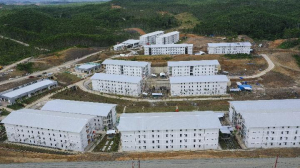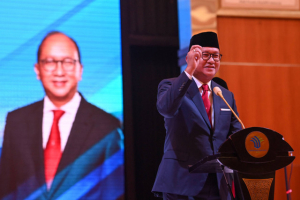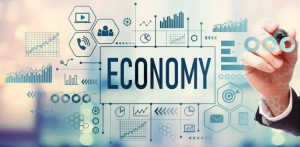Bappenas reveals challenges in implementing green development in Indonesia
The National Development Planning Agency (BAPPENAS) revealed that there are three challenges in implementing green development in Indonesia.
“There are three key problems in implementing environmentally friendly green development in Indonesia,” Vivi Yulaswati, Deputy for Maritime Affairs and Natural Resources at the Ministry of National Development Planning, said at the launch of the Green Academy Development Initiative with the "Building Environmental Planning in Achieving Indonesia's Golden Vision 2045" team on Wednesday, May 22, 2024.
First is the lack of capacity and decision-making process to plan and implement green development policies.
Currently, Indonesia has problems in the context of capacity and of course the decision-making mechanisms and processes are still at the macro level and fail to address fundamental problems, Vivi said.
Second, demand for environmentally friendly investments is high in the transition towards low-carbon and climate-resilient development.
According to Vivi, Indonesia currently needs to implement practices and investments that lead to environmentally friendly development while undergoing a transition process, implementing an environmentally friendly and low-emission economy.
Apart from that, the transition also includes skills and workforce in filling green jobs.
"We need quite large investments, such as various financing innovations, collaboration schemes, blended finance, and so on," she said.
The third challenge is the gap in obtaining environmentally friendly technology and innovation to support the implementation of sustainable green development in the future.
Vivi said that response to the third challenge will require research and technological development, which is encouraged by supporting regulations and institutions.
"We are expected to address the issue of gaps in technology mastery…but admitting that its acquisition certainly requires the hands of university friends to also develop capacity in the context of technology mastery and innovation," she said.
Meanwhile, judging from the implementation of green development in other countries, there are several key factors that slow down environmental issues which are seen from the aspects of technical expertise and institutional capacity that must be optimal, including the quality of research, data and governance.
Tag
Already have an account? Sign In
-
Start reading
Freemium
-
Monthly Subscription
30% OFF$26.03
$37.19/MonthCancel anytime
This offer is open to all new subscribers!
Subscribe now -
Yearly Subscription
33% OFF$228.13
$340.5/YearCancel anytime
This offer is open to all new subscribers!
Subscribe now






